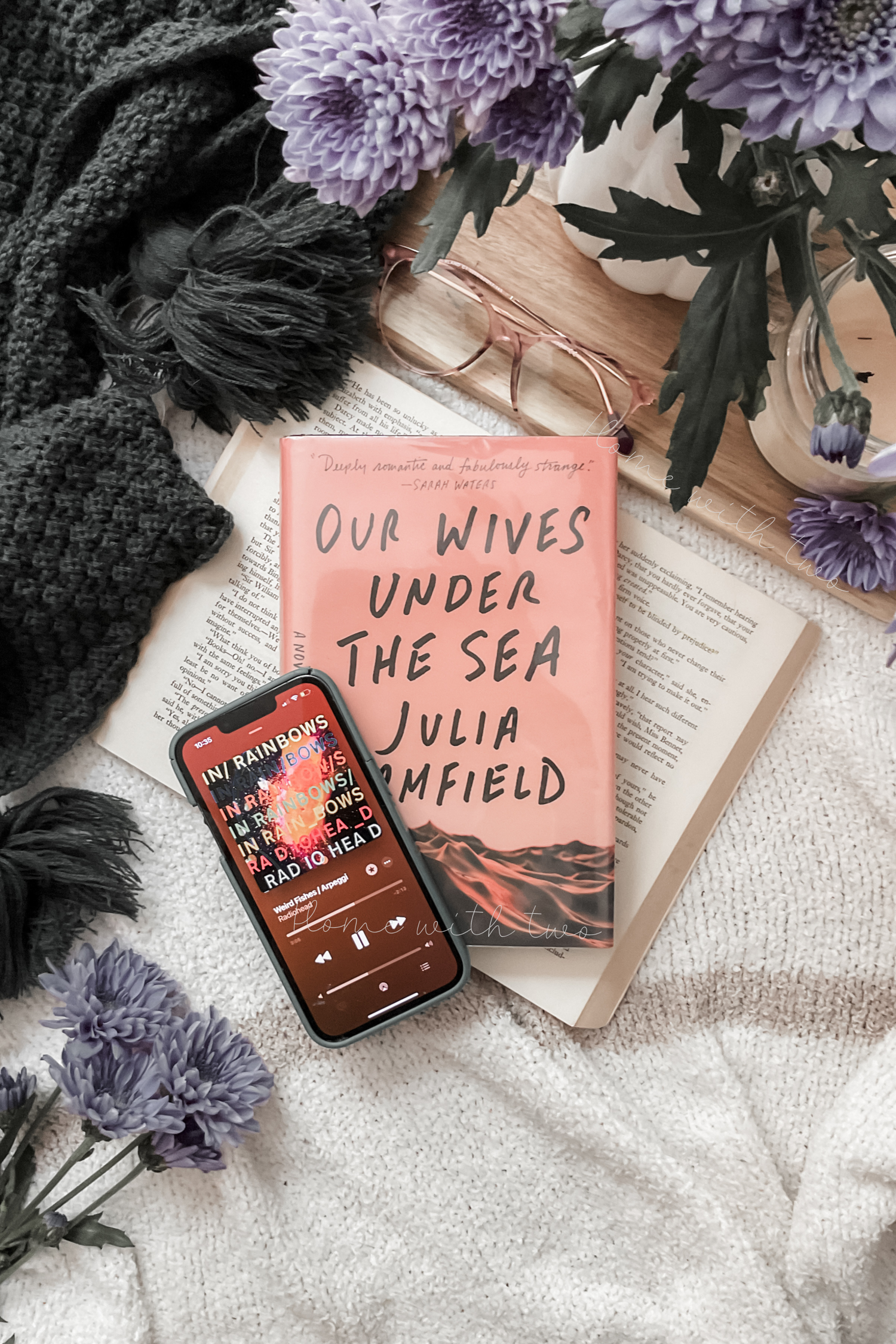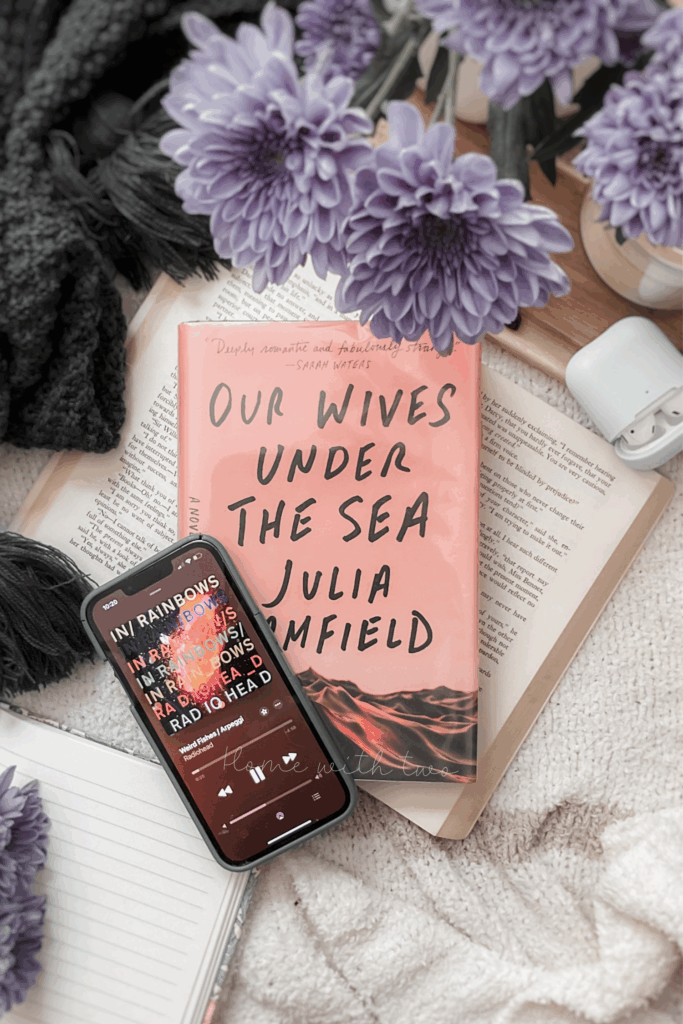
After finishing Our Wives Under the Sea, I sat with this lingering ache, the kind that comes from reading something that understands an emotion you’ve felt but could never quite put into words. I wanted to make sense of that ache, to find something else that echoed it into the words I couldn’t pinpoint.
Music has always been able to mirror feelings I’ve had when I just can’t put them into the right words, so the first thing that came to mind was the song “Weird Fishes/Arpeggi” by Radiohead.
This song helped me process what I was feeling about the book. But we’ll dive headfirst into that in just one moment..
This post could contain affiliate links, which means I would receive a small commission at no cost to you should you shop using the links.
Our Wives Under The Sea
When I first picked up Our Wives Under the Sea, I wasn’t sure what I was walking into at all.
Was this going to be a sci-fi horror where Leah literally transforms into some deep-sea monster?
It had all the makings of a sci-fi horror story, but then the symbolism hit me so hard, and from that moment on, the book was an emotional gut punch.
At its core, Our Wives Under the Sea isn’t just a story about a woman coming back from the depths of the ocean, it’s about how love changes in ways we can’t always fully understand or control. It’s about how sometimes relationships don’t end because of some clear, definable event. There’s no betrayal, no sudden tragedy. Just a slow, quiet, aching unraveling.
It’s a story about grief. Not just for a person, but for a relationship and the version of love that once existed but can’t anymore.
Leah comes home, but she isn’t the same, and Miri is left holding onto a love that is still there in her heart but no longer alive in the same way. That’s what makes this book so heartbreaking. It perfectly captures the confusion and uncertainty of realizing that something is over, even as you still care for the person standing in front of you.
One of the most relatable aspects of the book is how isolating Miri’s grief is. She hasn’t physically lost Leah, but the deep emotional connection they once had is slipping further and further away.
Often when a relationship is ending you find yourself searching for something to explain why. But sometimes, there is no singular reason. You’re just left with this overwhelming sense of trying to hold onto something that’s already slipping well beyond your fingers.

Weird Fishes
I first heard Weird Fishes at a time when I was feeling incredibly vulnerable. One of those moments where music doesn’t just speak to you, it stays with you. It’s never really left.
There’s something about Weird Fishes that lives in the same emotional space as this book. It starts with this sense of slowly being pulled under that mirrors the book:
In the deepest ocean / The bottom of the sea / Your eyes / They turn me
Radiohead, weird fishes
It reminds me of how love can take you to such deep places, how it can consume you completely. Just like Miri’s love for Leah. Miri follows Leah emotionally, even as Leah drifts further away, transformed by something Miri will never fully understand.
That line:“Why should I stay here? / I’d be crazy not to follow,” it feels like her entire internal struggle. How do you stay when the person you love is already gone? And how do you not follow them when your whole heart still belongs to who they used to be for you?
Turn me into phantoms / I follow to the edge / Of the earth / And fall off
Radiohead, weird fishes
These lyrics mirror that strange, liminal space Miri exists in where the love she feels hasn’t vanished, but it also no longer has a home to go to.
Towards the end, Miri starts thinking about the happy memories she and Leah shared. It felt so real because that’s exactly what we do when we know something is ending but aren’t ready to let go.
We replay the best moments, using them to justify staying, to convince ourselves that maybe, just maybe things can go back to the way they were. Even when we know, deep down, they can’t.
This part of the book broke me because it captured that quiet, desperate hope so well. Miri knows Leah isn’t coming back, at least not in the way she wants her to. But letting go isn’t just about acknowledging loss, it’s about allowing yourself to move forward, even when the past still holds so much love.
I hit the bottom and escape
Radiohead, weird fishes
To me, that lyric mirrors the emotional end of the novel—the moment where holding on fully stops. Miri quite literally lets go of Leah, back to the ocean, back to whatever has taken her, back to the place that allowed this love to end.
There’s no dramatic conclusion, no satisfying closure. Just a quiet acceptance. A letting go. And it’s not easy, it’s not clean. But maybe it’s an escape… a way back to the surface.
It’s strange how a novel about a woman coming back from the ocean and a song about sinking beneath it can speak the same language. But they do. And together, they reminded me that sometimes, the scariest part of love isn’t the end itself, it’s the slow fading before.

